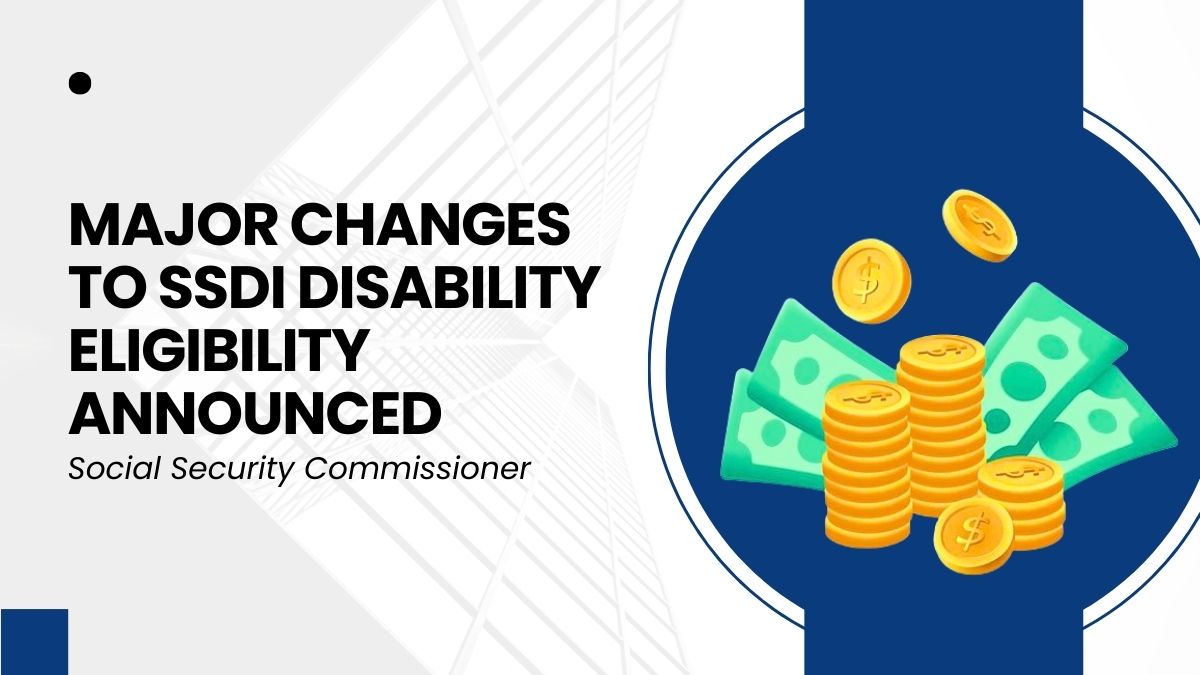The Social Security Administration (SSA) has recently introduced a significant change in how it evaluates applications for Social Security Disability Insurance (SSDI) and Supplemental Security Income (SSI) benefits. As of June 22, applicants are no longer required to provide an extensive work history covering the past 15 years. Instead, they now only need to list their employment history for the last five years. This change aims to reduce the burden on applicants and streamline the SSA’s decision-making process.
Simplifying Work History
This new rule, championed by Social Security Commissioner Martin O’Malley, is designed to ease the stress of filling out SSDI and SSI applications. By focusing only on the last five years of employment, applicants can concentrate on their most recent and relevant work experiences. O’Malley emphasized that this shift not only makes the process less time-consuming for applicants but also improves the efficiency of the SSA’s operations.
But the benefits extend beyond just reducing paperwork. The SSA believes that narrowing the focus to a more recent work history will enhance the accuracy of disability assessments. By concentrating on the most current and pertinent information, SSA decision-makers can better evaluate an applicant’s ability to perform substantial work under current circumstances.
Improving Efficiency
In addition to making life easier for applicants, this change is expected to improve the SSA’s internal processes. With fewer years of work history to review, the SSA can speed up the evaluation of disability claims, resulting in faster decisions and reduced wait times for applicants. This efficiency boost is crucial, as it allows the SSA to provide better customer service and process cases more quickly, benefiting both the applicants and the administration.
Moreover, this change in the evaluation process reflects the SSA’s ongoing efforts to modernize its operations. By simplifying requirements and focusing on more relevant information, the SSA aims to create a more streamlined, user-friendly application process.
Disability Evaluation
A comprehensive work history has always played a crucial role in determining eligibility for SSDI and SSI benefits. Applicants must prove that their disability prevents them from engaging in substantial gainful activity for at least one year or is expected to result in death. However, recalling and documenting up to 15 years of employment can be challenging, especially for those dealing with the physical and mental strains of a disability.
Recognizing this, the SSA’s new rule eliminates the need to include work experiences that lasted less than 30 days. This adjustment further simplifies the process, ensuring that applicants do not have to document short-term jobs that do not significantly contribute to the assessment of their disability.
Impact of the New Rule
The shift from a 15-year to a 5-year work history requirement is likely to have several implications for the evaluation process:
- Reduced Burden on Applicants: Applicants will no longer need to provide detailed information about jobs held more than five years ago, making the application process less daunting and time-consuming.
- Enhanced Focus on Relevant Work: By concentrating on the last five years, the SSA can focus on the most relevant work experiences, providing a more accurate reflection of the applicant’s current ability to work.
- Exclusion of Short-Term Jobs: The SSA will no longer consider jobs that lasted less than 30 days when evaluating a disability claim, acknowledging that such positions may not accurately represent an individual’s ability to engage in substantial gainful activity.
Potential Effects
While the shorter time frame for considering employment history may increase the chances of approval for some applicants, the overall impact on approval rates will depend on various factors. Some applicants, who might have been denied benefits based on work history beyond five years, may now have a higher likelihood of approval. However, this change is just one of many updates to the SSA’s disability evaluation process, and its full impact will only become clear over time.
In essence, this new rule is part of a broader effort by the SSA to improve the fairness and efficiency of the disability evaluation process. By focusing on more recent work history, the SSA hopes to make disability assessments more accurate and reflective of an applicant’s current situation. This change, along with other updates like revising the Dictionary of Occupational Titles (DOT), demonstrates the SSA’s commitment to a more streamlined and equitable system for evaluating disability claims.
FAQs
What is the new work history requirement for SSDI and SSI?
Applicants now only need to list their work history for the past five years.
Why did the SSA reduce the work history requirement?
To reduce the burden on applicants and streamline the evaluation process.
Will this change speed up disability benefit approvals?
Yes, it is expected to result in faster processing times.
Does the new rule apply to short-term jobs?
No, jobs lasting less than 30 days are excluded from consideration.
How might this change affect approval rates?
The shorter history may increase approvals but depends on individual cases.
